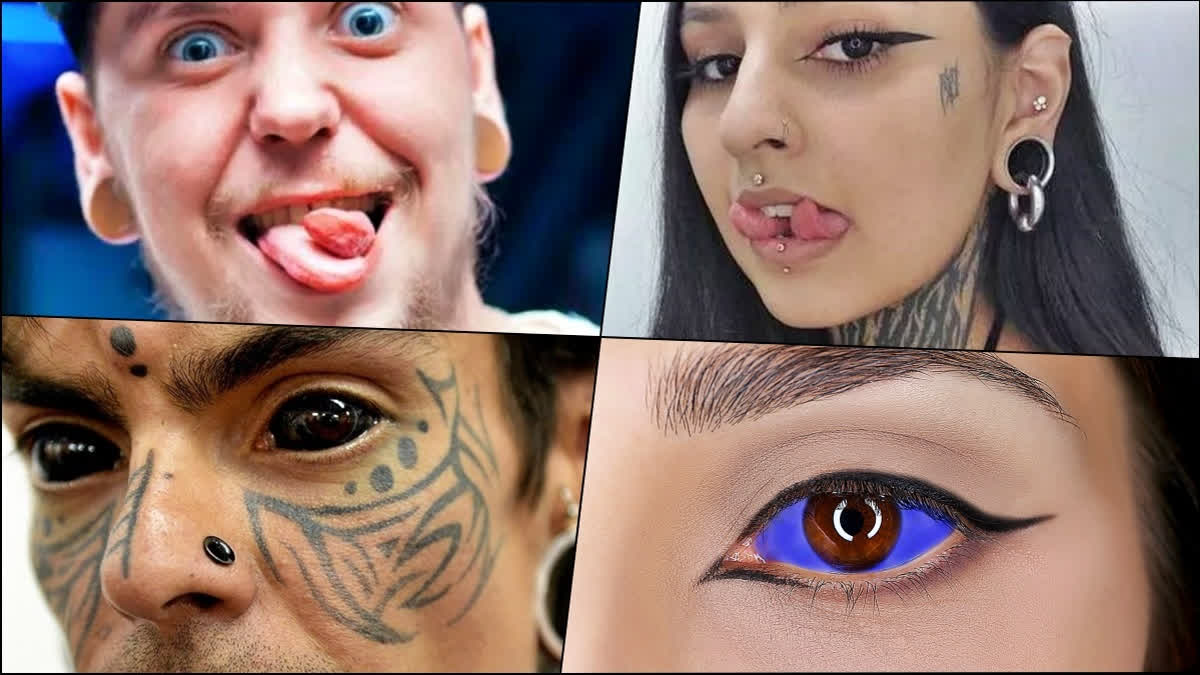A recent incident in Trichy, Tamil Nadu, has brought attention to the severe risks associated with extreme body modifications like tongue splitting. In this case, a tattoo artist filmed himself splitting his friend's tongue (a dangerous procedure often performed by untrained individuals in non-sterile environments). Both individuals were arrested, and the tattoo parlor was sealed by authorities.
Tongue splitting and scleral tattooing (eyeball tattoos) have emerged as controversial trends that push the boundaries of self-expression. While these modifications may seem daring, their health risks are significant and often irreversible. According to Dr. Sheetal Radia, ENT & Head Neck Surgeon at Wockhardt Hospitals in Mira Road, these procedures come with a host of medical dangers that demand serious consideration.
Tongue Splitting
Tongue splitting involves surgically dividing the tongue into two parts, creating a forked appearance. Though this procedure is gaining popularity as a form of body modification, its risks outweigh its aesthetic appeal.
Dr. Radia says, “Tongue splitting can cause excessive bleeding, severe infections, nerve damage, loss of sensation or taste, and swelling that may block your airways.” When performed in unsterile conditions, the risks amplify significantly, potentially leading to abscesses, major scarring, and even sepsis (a life-threatening condition).
Beyond the initial healing period, the procedure can result in persistent pain, nerve damage, and restricted tongue movement, making everyday activities like eating and speaking challenging. Dr. Radia warns, “The splitting of the tongue can disrupt its normal movements, affecting its ability to form words properly. Speech issues like slurring, fumbling, and loss of clarity are common and can become permanent if the tongue does not heal properly.”
Eyeball Tattoos
Scleral tattooing involves injecting dye into the whites of the eyes to create an otherworldly appearance. While the results might be visually dramatic, the risks associated with this procedure are equally intense and often irreversible.
Injecting colour into the sclera can lead to a range of complications, including:
- Permanent blindness
- Corneal scarring
- Retinal damage
- Glaucoma
- Loss of the eye
Dr. Radia says, “These procedures can significantly increase the risk of harmful allergic reactions, inflammation, and severe infections that negatively impact the quality of life.” In many cases, these effects cannot be undone, leaving individuals with lifelong consequences.
